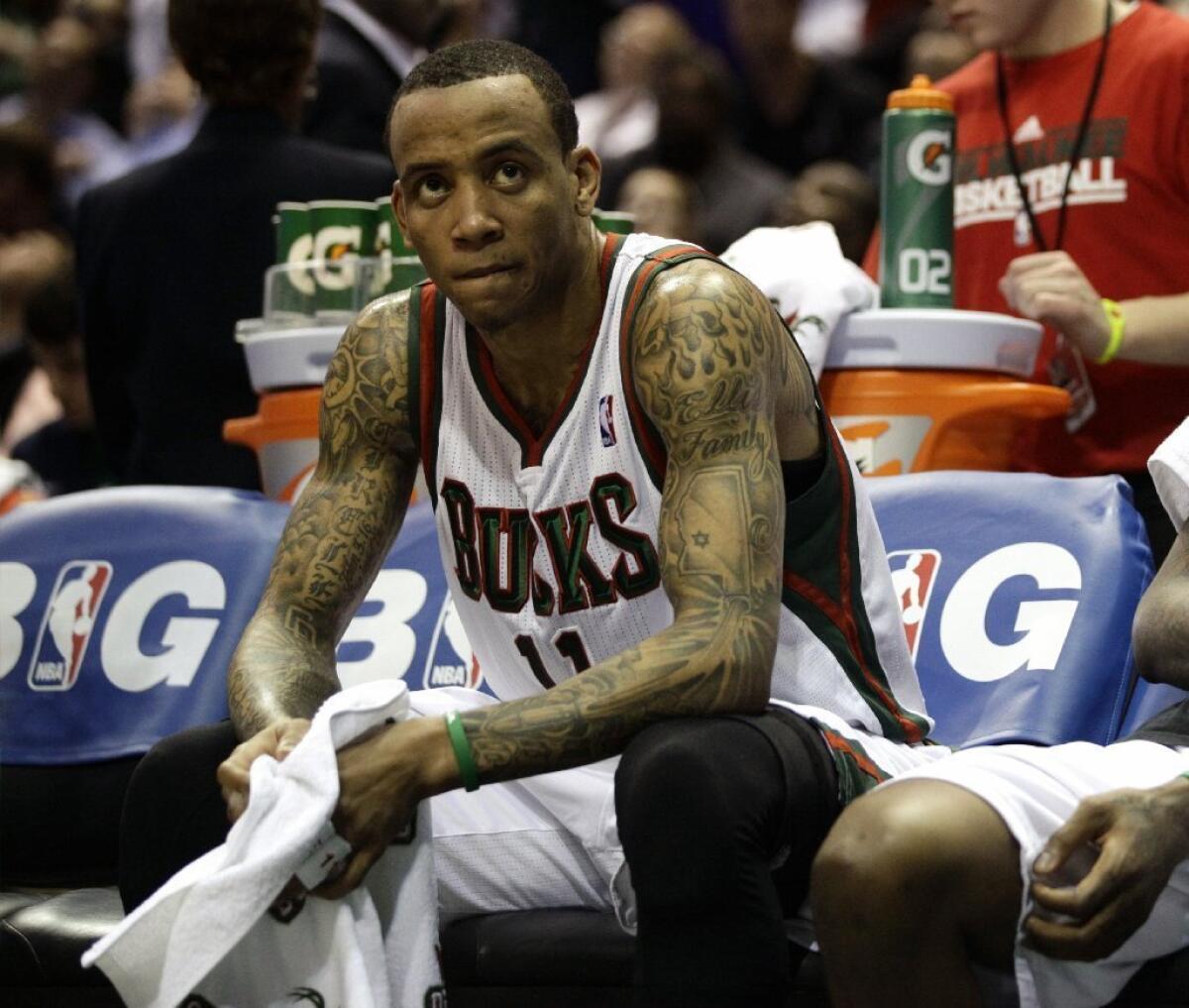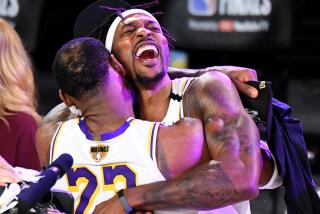Lakers can’t get player via ‘sign and trade’ as luxury-tax team

- Share via
For the first time since the collective bargaining agreement was ratified in 2011, teams above the “tax apron” are blocked from acquiring players via sign and trade.
Last off-season, the Lakers brought in Steve Nash from the Phoenix Suns through sign and trade. Given the team’s sizable payroll, a similar transaction might be impossible for the Lakers this summer.
The tax threshold is expected to come in at an estimated $71.5 million. The apron will be set to $4 million over the threshold — or approximately $75.5 million.
The Lakers currently have $68.1 million in guaranteed salary for the coming year, more if Metta World Peace doesn’t opt out of the final $7.7 million on his contract.
The Lakers hope to re-sign Dwight Howard for approximately $20.5 million. With both Howard and World Peace under contract, the Lakers payroll would climb close to $100 million.
The Lakers still have their one-time amnesty, which could be used on Kobe Bryant, Steve Blake, Pau Gasol or World Peace. If the team used it on one of the latter three, the Lakers’ payroll would still sit over the apron.
It would take amnestying Bryant for the Lakers’ payroll to shrink to about $70 million. While that might enable the team to make a sign and trade, it’s not worth cutting ties with Bryant (despite his Achilles’ injury).
If Howard returns, the Lakers are not going to be able to bring in a player via sign and trade.
Conversely, the Lakers are legally permitted to sign and trade Howard to another team. It’s the acquiring of a player that is banned for teams above the tax apron.
As an example of the distinction, the Lakers can technically sign and trade Howard to the Hawks for Al Horford (who is under contract) but not for Josh Smith, in a dual sign and trade.
Additionally, former Times columnist Mark Heisler recently wrote that the Lakers won’t agree to sign and trade Howard if he decides to leave as a free agent.
“The Lakers’ fallback position would be to bring back this team and bank the savings — almost $50 million in salary and luxury tax,” said Heisler at LakersNation.com.
Should Howard return and the team’s payroll hits $100 million, the Lakers could end up paying an additional $80 million in luxury tax.
With such a hefty bill, the team may look to trade (or even amnesty) Gasol. If not Gasol, World Peace could be let go because of budgetary constraints.
The team can also pay out the full $180 million, a possibility Bryant might prefer in his quest for a sixth championship.
If Howard walks, the Lakers have a very different economic picture. Team salary could dip as low as $80 million, lower if World Peace is amnestied (approximately $73 million).
If Howard left and the Lakers amnestied Gasol, the Lakers would still be over the salary cap (estimated to be $58.5 million this coming season) but under the tax threshold completely. Of course, then they’d have no center to speak of.
The Lakers’ future is tied to Howard’s decision. They’re not going to be able to sign and trade a player to try to sway their free-agent center to return.
Players such as Chris Paul, Monta Ellis, Josh Smith and Andre Iguodala are all off limits to the Lakers if they can’t sign and trade — unless one is willing to come for the taxpayer midlevel exception, well below market value.
ALSO:
Marcus Landry expected to join Lakers’ summer league squad
Phil Jackson compares Wilt Chamberlain and Shaquille O’Neal
Phil Jackson recalls night he asked Jerry West to leave locker room
Email Eric Pincus at [email protected] and follow him on Twitter @EricPincus.
More to Read
All things Lakers, all the time.
Get all the Lakers news you need in Dan Woike's weekly newsletter.
You may occasionally receive promotional content from the Los Angeles Times.







